Ethiopian Farmers Reduce Yield Losses through Soil and Water Conservation Initiative
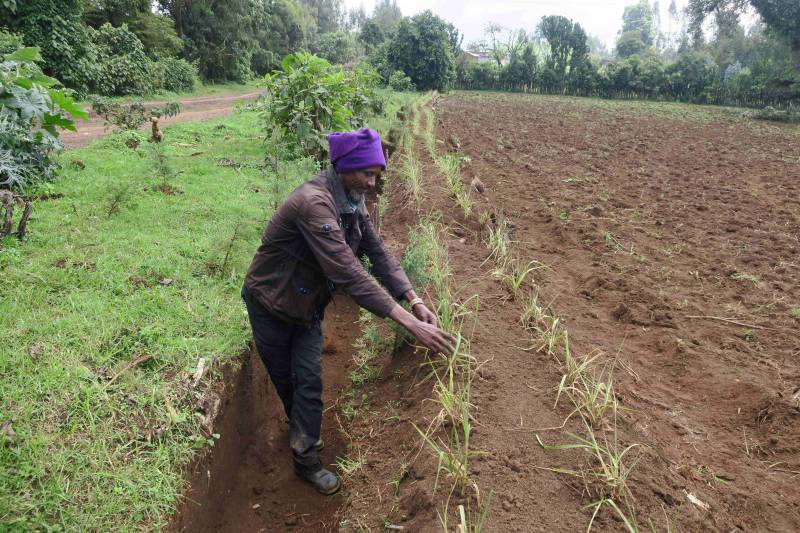
Soil erosion remains one of the leading causes of land degradation in Ethiopia, affecting cultivated fields, grazing lands and other land uses. The interconnected nature of these landscapes, including: cultivated outfields, homesteads, grazing areas, forests, woodlots, and others calls for a landscape approaches to effectively address rural land degradation.
Landscape-level Regenerative Agriculture (RA) focuses on restoring soil health and improve productivity, and supporting biodiversity and ecosystem function. This approach promotes a long-term agricultural sustainability by embracing nature-positive methods fostering community and stakeholders’ involvement.
The Sasakawa Africa Association (SAA) has been championing RA across its intervention areas, primarily focusing on cultivated fields to improve soil fertility, restore agrobiodiversity, and agroecosystem resilience. Recognizing the need for broader impact, SAA has expanded beyond crop-focused interventions to adopt a more integrated, landscape-level approach in six districts across four regions: Meket and Kewet (Amhara), Angacha (Central Ethiopia), Negele Arsi and Ana Sora (Oromia), and Aleta Wondo (Sidama).
Community-Driven Restoration
In collaboration with grass-root government entities, SAA conducted community consultations to build consensus, ensure ownership, and mobilize collective action. These participatory efforts led to the design and construction of Soil and Water Conservation (SWC) structures across the selected micro-watersheds —efforts that have since scaled to the broader landscape.
Key interventions include:
- SWC Structures: soil and stone bunds, terraces, waterways, micro-basins
- Agroforestry initiatives: forage production, horticulture, and tree planting
- Homesteads and outfield activities: women and youth friendly practices like vegetable production (permagardening), small-scale poultry; composting (Including vermicompost, vermi-wash) and access to improved crop varieties
- Integrated Soil Fertility Management (ISFM) practices and physical soil and water conservation measures enforced by multipurpose agroforestry species and other.
Scaling Up Results
Since 2021, SAA and community partners have achieved the following:
- Constructed 118 km of soil bunds with 522 trenches, 2.0 Km of stone bunds, 20 km of terrace maintenance, 100 m³of waterways, and 30 micro-basins
- Engaged 32,927 community members, 1,424 farmers of whom 723 women established 830 permagardens, 7 fruit grafting nurseries, and 587 agroforestry plots.
A recent assessment found:
- 40.1% of the 292 surveyed households adopted SWC practices
- 30% adopted agroforestry practices with 48.3% implementing border tree planting and 42.8% adopting scattered tree plantings.
Farmers reported significant reductions in soil erosion and surface runoff, They also witnessed increased stability of SWCstructures, improved water infiltration, and moisture retention,and increased access to vegetables for household consumption and sale. to the introduction of higher-yielding and diverse crop species also improved imcome and food security increased.
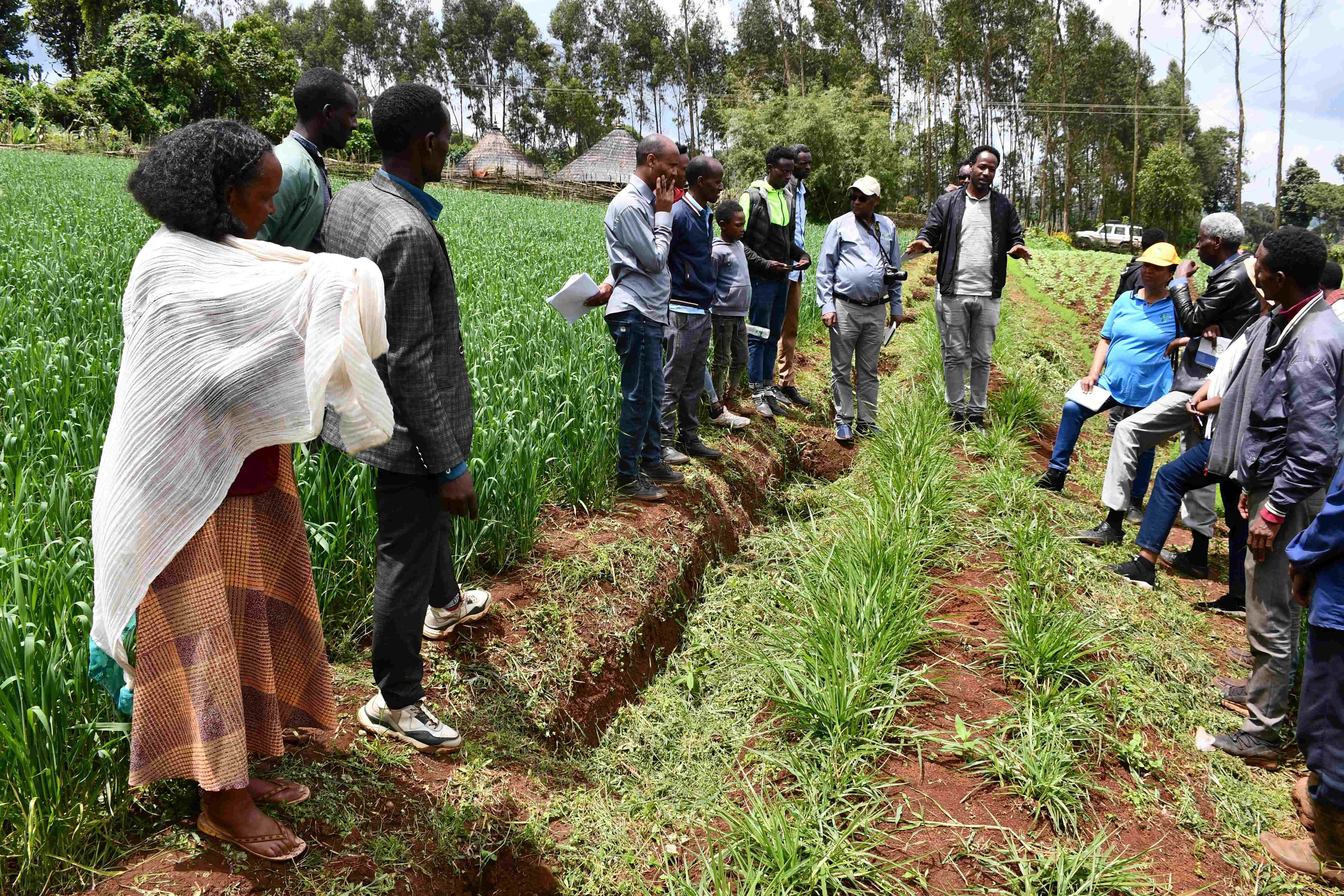 Participatory Joint monitoring field visit at the landscape level
Participatory Joint monitoring field visit at the landscape levelEvidence of Impact
According to SAA’s 2023 mid-term review, compared to the 2021 baseline:
Yield loss were reduced by:
- 14.5 % due to soil erosion
- 13.1% from flooding
- 16.6% from early dry spells .
These results demonstrate how landscape-level RA is enhancing farmland resilience, and sustaining crop productivity in moisture-limited conditions, and restoring deegraded ecosystems. Through this holistic approach, SAA and its partners are laying the groundwork for a more sustainable agricultural livelihoods in Ethiopia.
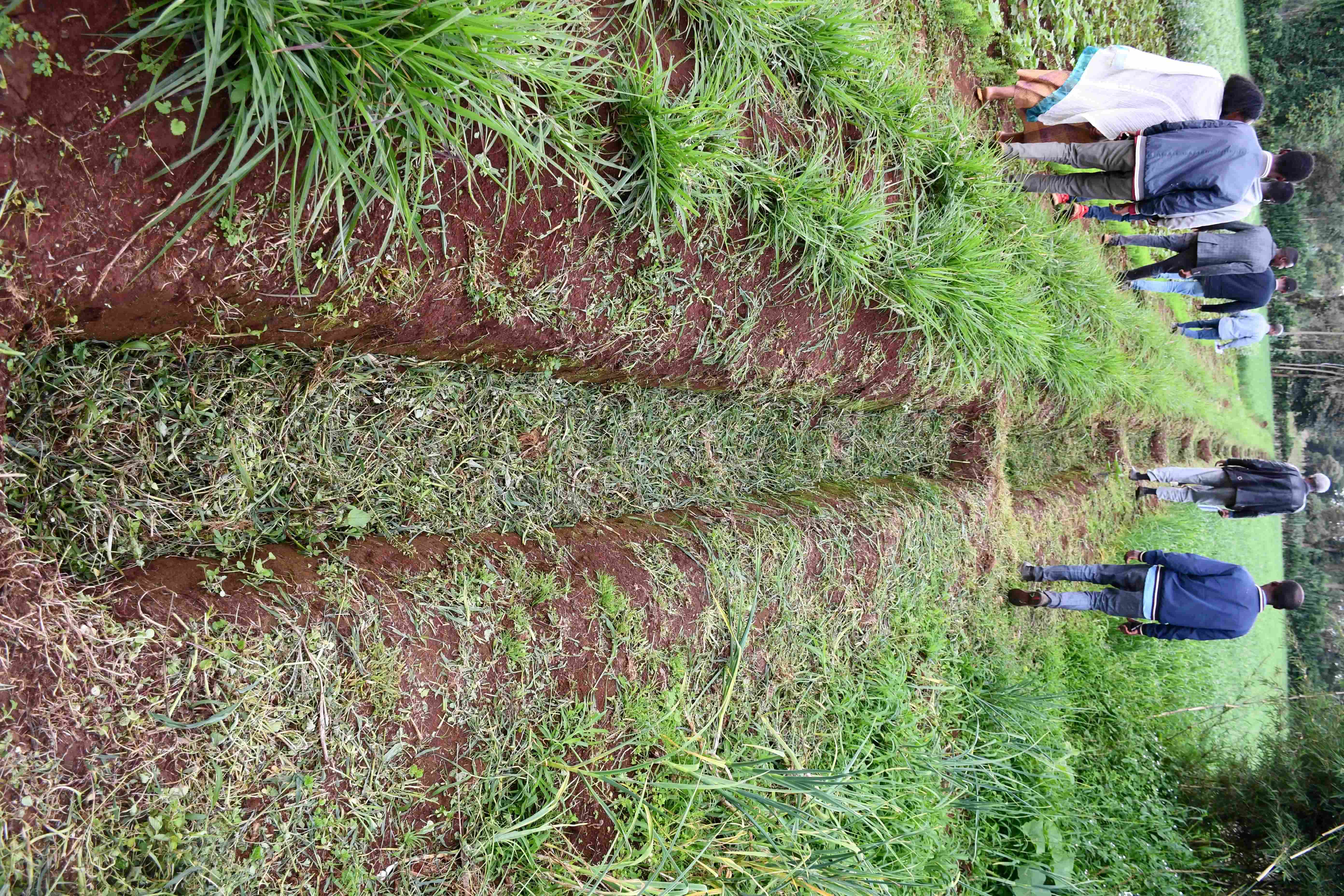 Red vertical trenches and bunds at the landscape level
Red vertical trenches and bunds at the landscape level
SAA Publications
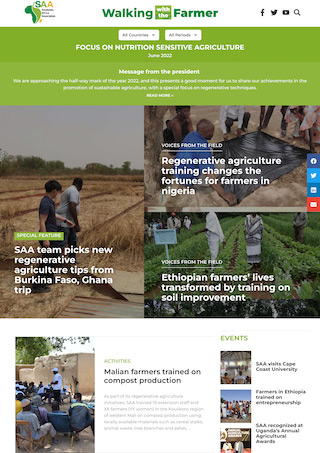
E-newsletter
"Walking with the Farmer"
SAA publishes a bimonthly e-newsletter reporting on SAA activities.
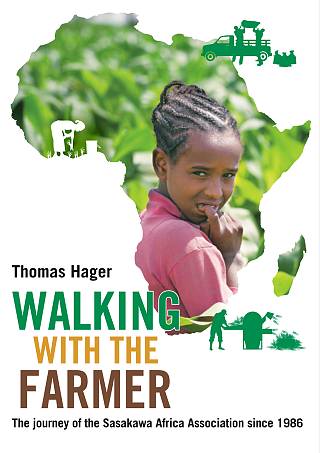
SAA history book
"Walking with the Farmer: The journey of the Sasakawa Africa Assoication since 1986"
This book chronicles the history of SAA from its inception to the present.
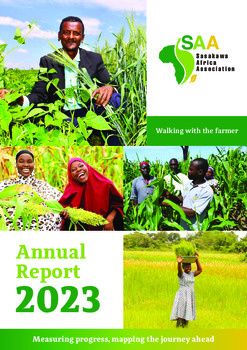
Annual Report
Annual Report FY2023
Annual Report FY2023 is available here.




